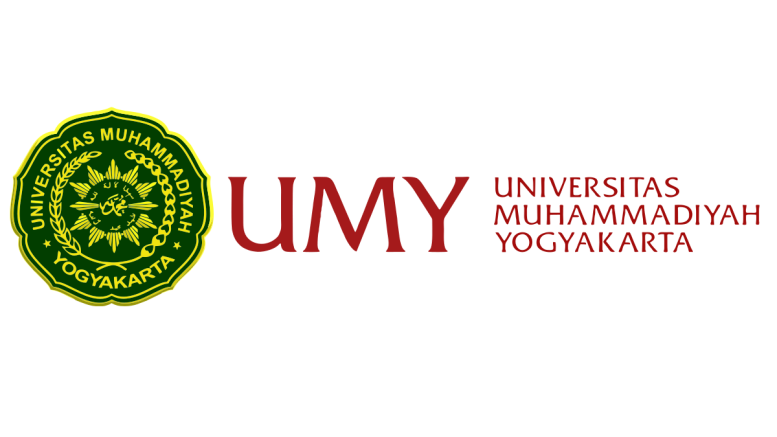The Threat of Green Grabbing to Indigenous Peoples’ Rights in the Implementation of Law Number 32 of 2024
DOI:
https://doi.org/10.33506/js.v11i3.4601Keywords:
Green Grabbing, Indigenous Peoples, Conservation, Agrarian Reform, Environmental LawAbstract
This study aims to examine the threat of green grabbing in the implementation of Law No. 32 of 2024 concerning Natural Resource and Ecosystem Management, with a focus on its impact on land tenure by indigenous peoples and environmental governance.
This study uses normative legal research methods by analyzing legislation, international legal instruments, and related academic literature. A doctrinal approach is applied to assess the alignment between the normative ideals of the law and the practical implications of Law No. 32 of 2024, particularly those related to the recognition of customary land rights and environmental management involving indigenous peoples.
The novelty of this research lies in its critical assessment of the conservation framework as a potential instrument for land grabbing legalized by the state in the era after the enactment of Law Number 32 of 2024. This research highlights the tension between the goals of ecological preservation and the protection of indigenous peoples' rights, which are often neglected in the implementation of conservation policies.
The results of the study show that although Law No. 32 of 2024 contains progressive principles such as community participation and recognition of indigenous peoples, its implementation remains weak. This is reflected in the lack of adequate recognition of customary land rights and the weak application of the Free, Prior, and Informed Consent (FPIC) procedure, which opens up opportunities for the misuse of conservation policies as a pretext for land grabbing.
This study concludes that the effectiveness of Law No. 32 of 2024 depends on the establishment of clear technical regulations, strong protection mechanisms for customary territories, and integrative agrarian reform. To prevent conservation policies from becoming a justification for land grabbing, indigenous communities must be recognized not only as affected parties but as key stakeholders in natural resource management.
References
Abdussamad, Zamroni, Amanda Adelina Harun, Mohamad Hidayat Muhtar, Fenty U. Puluhulawa, Vifi Swarianata, dan Nurul Fazri Elfikri. “Constitutional Balance: Synchronizing Energy and Environmental Policies with Socio-Economic Mandates.” E3S Web of Conferences 506 (2024): 06006. https://doi.org/10.1051/e3sconf/202450606006.
Alvian, Fitra, dan Dian Aries Mujiburohman. “Implementasi Reforma Agraria Pada Era Pemerintahan Presiden Joko Widodo.” Tunas Agraria 5, no. 2 (18 April 2022): 111–26. https://doi.org/10.31292/jta.v5i2.176.
Bakung, Dolot Alhasni, Viorizza Suciani Putri, Mohamad Hidayat Muhtar, Weny Almoravid Dungga, dan Nirwan Junus. “Criticizing Potential Deviations in the Role of Environmental Impact Analysis after the Enactment of the Job Creation Law.” E3S Web of Conferences 506 (2024): 06005. https://doi.org/10.1051/e3sconf/202450606005.
Estradivar, Christian Novia N. Handayani, Dirga Daniel, dan Adib Mustofa. “MARINE PROTECTED AREA NETWORK DESIGN: CASE STUDY OF MALUKU PROVINCE.” Coastal and Ocean Journal (COJ) 1, no. 2 (22 November 2017): 135–46. https://doi.org/10.29244/COJ.1.2.135-146.
Fairhead, James, Leach ,Melissa, Ian, and Scoones. "Green Grabbing: a new appropriation of nature?" The Journal of Peasant Studies 39, no. 2 (1 April 2012): 237–61. https://doi.org/10.1080/03066150.2012.671770.
Gobel, Rahmat Teguh Santoso, Mohamad Hidayat Muhtar, Dewinta Rizky R. Hatu, Ratih Ikawaty R. Hatu, dan Mohamad Syafri Pautina. “Environmental Policy Formulation through the Establishment of Food Reserve Regulations: Opportunities and Challenges.” E3S Web of Conferences 506 (2024): 05002. https://doi.org/10.1051/e3sconf/202450605002.
Imran, Suwitno Y., Apripari Apripari, Mohamad Hidayat Muhtar, Jufryanto Puluhulawa, Julisa Aprilia Kaluku, dan Lisnawaty W. Badu. “Existentialism and Environmental Destruction: Should Polluters Face Criminal Punishment or an Existential Crisis?” E3S Web of Conferences 506 (2024): 06001. https://doi.org/10.1051/e3sconf/202450606001.
Marzuki, Prof Dr Mahmud. Penelitian Hukum: Edisi Revisi. Prenada Media, 2017.
Mubarok, Asnawi, Absori, Harun, dan Sheela Jayabalan. “The Relationship Of State Law And Customary Law:: Reinforcement And Protection Of Customary Law In Constitutional Court Judgment.” Jurnal Jurisprudence, 18 Desember 2023, 188–204. https://doi.org/10.23917/jurisprudence.v13i2.2914.
Muhtar, Mohamad Hidayat, Amanda Adelina Harun, Viorizza Suciani Putri, Apripari Apripari, dan Mohamad Rivaldi Moha. “Addressing the Paradox: Why Environmental Constitutionalism Is More than Just Rights?” E3S Web of Conferences 506 (2024): 06004. https://doi.org/10.1051/e3sconf/202450606004.
Putri, Viorizza Suciani, Mohamad Hidayat Muhtar, Putri Ayi Winarsasi, dan Sardjana Orba Manullang. Kewenangan Izin Pemanfaatan Ruang Pasca Undang-undang Cipta Kerja. Eureka Media Aksara, 2023. https://repository.penerbiteureka.com/publications/563020/.
Rs, Iza Rumesten, Mohammad Hidayat Muhtar, Amanda Adelina Harun, Dolot Alhasni Bakung, dan Nirwan Junus. “Protection of Human Rights Against the Environment in the Indonesian Legal System.” Journal of Law and Sustainable Development 11, no. 10 (23 Oktober 2023): e570–e570. https://doi.org/10.55908/sdgs.v11i10.570.
Rusdiana, Dani, M. P. A. Tati, dan Sultan Nugraha. “Identifikasi Pelanggaran AMDAL Mega Proyek Wisata Pulau Komodo Nusa Tenggara Timur.” Jurnal Identitas 1, no. 1 (2021): 42–52. https://doi.org/10.52496/identitas.v1i1.103.
Saturi, Sapariah. “Jalan Panjang Perlindungan Masyarakat Adat Dayak Pitap.” Mongabay.co.id (blog), 23 Februari 2024. https://mongabay.co.id/2024/02/23/jalan-panjang-perlindungan-masyarakat-adat-dayak-pitap/.
Silalahi, Daud. Hukum Lingkungan : Dalam Sistem Penegakan Hukum Lingkungan Indonesia. 2001: Alumni, 1996.
Simarmata, Jorawati. “Tumpang Tindih Undang-Undang Konservasi Sumber Daya Alam Hayati dan Ekosistemnya.” Jurnal Legislasi Indonesia 15, no. 3 (2018): 185–96. https://doi.org/10.54629/jli.v15i3.245.
Sudarmo, Sudarmo, Yenny Febrianty, Viorizza Suciani Putri, Mohamad Hidayat Muhtar, dan Salahuddin Salahuddin. “Critical Study of the Implementation of the Right of Self-Determination in Protecting Indonesia’s Environmental and Economic Sovereignty.” Dalam E3S Web of Conferences, 611:05002. EDP Sciences, 2025. https://www.e3s-conferences.org/articles/e3sconf/abs/2025/11/e3sconf_iseep2025_05002/e3sconf_iseep2025_05002.html.
Sudarshana, Padmini, Madhugiri Nageswara-Rao, dan Jaya Soneji. Tropical Forests: New Edition. BoD – Books on Demand, 2018.
Tambunan, Irma. “Kehabisan Pangan, Orang Rimba Tewas Dikeroyok ”Orang Terang”.” Kompas.id, 3 Mei 2025. https://www.kompas.id/artikel/kehabisan-pangan-orang-rimba-tewas-dikeroyok-orang-terang.
tempo.com. “5 Alasan Masyarakat hingga Aktivis Tolak Proyek Wisata Premium TN Komodo | tempo.co.” Tempo, 29 Oktober 2020. https://www.tempo.co/ekonomi/5-alasan-masyarakat-hingga-aktivis-tolak-proyek-wisata-premium-tn-komodo--569504.
Venter, Oscar, dan Lian Pin Koh. “Reducing Emissions from Deforestation and Forest Degradation (REDD+): Game Changer or Just Another Quick Fix?” Annals of the New York Academy of Sciences 1249, no. 1 (2012): 137–50. https://doi.org/10.1111/j.1749-6632.2011.06306.x.
Wantu, Fence, Mohamad Hidayat Muhtar, Viorizza Suciani Putri, Mutia Cherawaty Thalib, dan Nirwan Junus. “EKSISTENSI MEDIASI SEBAGAI SALAH SATU BENTUK PENYELESAIAN SENGKETA LINGKUNGAN HIDUP PASCA BERLAKUNYA UNDANG-UNDANG CIPTA KERJA.” Bina Hukum Lingkungan 7, no. 2 (2023): 267–89.
Wiryani, Fifik, Febriansyah Ramadhan, dan Mokhammad Najih. “Indigenous People’s Land Rights in Post-Soeharto Indonesia,” 27 Februari 2024. https://doi.org/10.1163/15718115-bja10152.
Downloads
Published
How to Cite
Issue
Section
License
Copyright (c) 2025 Maulana Hendra Mandala, Maria Ana Muryani, M.Khoirur Rofiq

This work is licensed under a Creative Commons Attribution-ShareAlike 4.0 International License.











